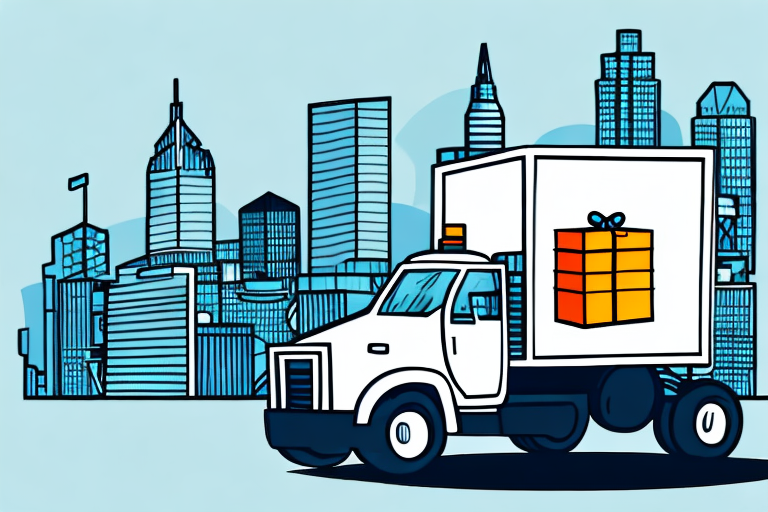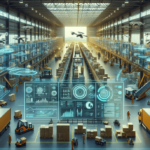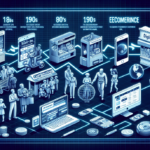Exploring the Benefits of Retail Delivery Services
Retail delivery services have transformed the shopping landscape, offering unprecedented convenience and flexibility to consumers. With the surge in online shopping, these services have become integral to the success of modern retail businesses. This article delves into the numerous advantages of retail delivery services and their profound impact on the retail industry.
Growing Popularity of Retail Delivery Services
Rise of E-commerce
The exponential growth of e-commerce has been a primary driver behind the increasing popularity of retail delivery services. According to a Statista report, global e-commerce sales are projected to reach $6.54 trillion by 2023. This surge has compelled retailers to enhance their delivery options to meet consumer demand and stay competitive.
Consumer Convenience
Convenience remains a cornerstone of the appeal of retail delivery services. Consumers value the ability to shop from the comfort of their homes, avoiding the need to visit physical stores. This trend is especially pronounced among busy professionals and individuals with limited access to retail locations.
Key Benefits of Retail Delivery Services
Time-Saving Advantages
One of the most significant benefits of retail delivery services is the substantial time saved. By eliminating the need for physical store visits, consumers can allocate their time to other important activities. Additionally, options like same-day or next-day delivery ensure that products are delivered promptly, enhancing the overall shopping experience.
Cost-Effective Solutions
Retail delivery services can also be a cost-effective choice for consumers. By reducing the need for transportation to physical stores, customers save on fuel or public transport costs. Moreover, many online retailers offer discounts or free delivery for orders exceeding a certain amount, providing further savings. Subscription-based models, such as Amazon Prime, offer additional benefits like free two-day shipping, which can be economical for frequent shoppers.
Environmental Sustainability
Retail delivery services contribute to environmental sustainability by optimizing delivery routes and reducing the carbon footprint. Consolidated deliveries and the use of electric or hybrid vehicles are strategies employed by many retailers to minimize their environmental impact. A study by the Environmental Protection Agency highlights the positive effects of efficient delivery systems on reducing greenhouse gas emissions.
The Role of Technology in Enhancing Delivery Services
Real-Time Tracking
Advanced technologies such as GPS tracking allow consumers to monitor their packages in real-time. This transparency enhances trust and allows customers to plan their schedules around delivery times. According to a McKinsey report, real-time tracking significantly boosts customer satisfaction and loyalty.
Innovative Delivery Options
Technological innovations like delivery drones and autonomous vehicles are revolutionizing the retail delivery landscape. These advancements promise faster and more efficient delivery solutions, addressing challenges like traffic congestion and last-mile delivery complexities.
Challenges and Future Trends
Last-Mile Delivery Issues
Last-mile delivery remains one of the most challenging aspects of retail delivery services. Factors such as traffic congestion, remote locations, and high delivery costs pose significant hurdles. To overcome these challenges, retailers are exploring innovative solutions like partnering with local delivery services and utilizing autonomous delivery vehicles.
Impact of COVID-19
The COVID-19 pandemic has accelerated the adoption of retail delivery services. With lockdowns and social distancing measures in place, consumers turned to online shopping in unprecedented numbers. This shift has led to lasting changes in consumer behavior and has underscored the importance of robust delivery infrastructures. Retailers have had to adapt swiftly, implementing enhanced safety measures and optimizing logistics to meet the surge in demand.
Future Trends
The future of retail delivery services is poised for continued growth and innovation. Trends such as same-day and even hour-long delivery are gaining traction, driven by evolving consumer expectations. Additionally, sustainable delivery practices and the integration of artificial intelligence for route optimization are expected to shape the industry's future.
Choosing the Right Retail Delivery Service
Selecting the appropriate retail delivery service is crucial for both businesses and consumers. Key factors to consider include reliability, cost-effectiveness, and the quality of customer service. Businesses should assess their specific needs, such as the volume of deliveries and the urgency of shipments, to choose a service that aligns with their operational requirements. Evaluating customer feedback and service reviews can also provide valuable insights into the performance of potential delivery partners.
Conclusion
Retail delivery services offer a myriad of benefits, from saving time and reducing costs to promoting environmental sustainability. As the retail landscape continues to evolve, these services will play an increasingly vital role in shaping consumer experiences and business strategies. By embracing technological advancements and addressing existing challenges, the retail delivery industry is well-positioned to meet the dynamic demands of modern consumers.




















